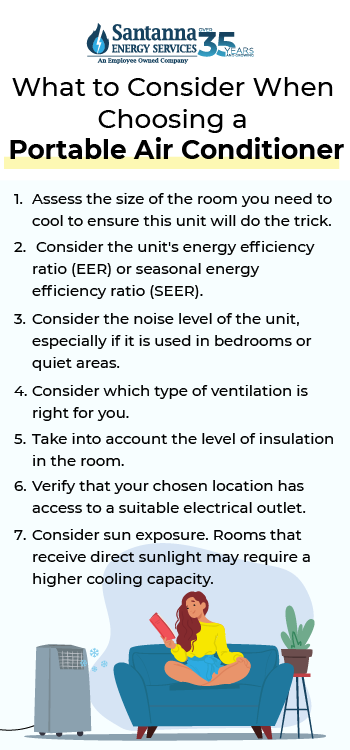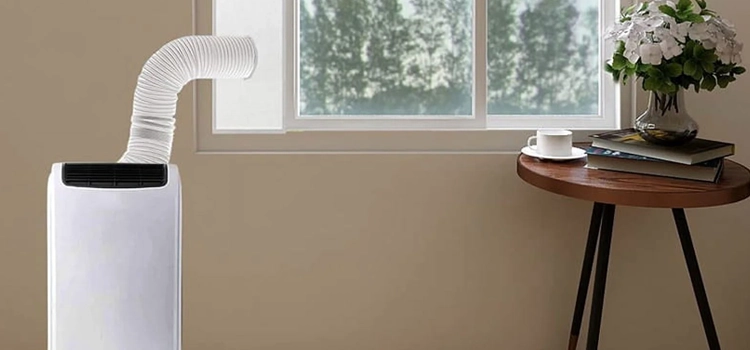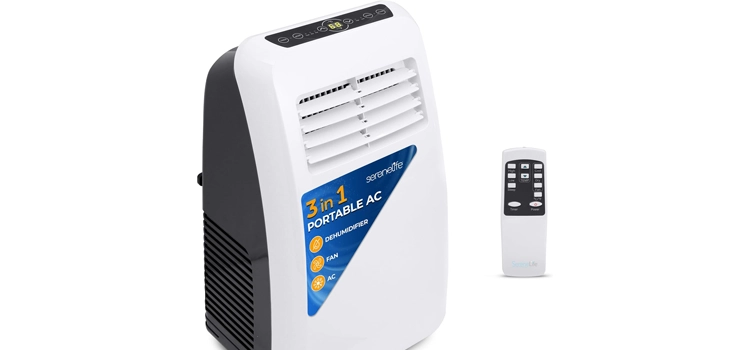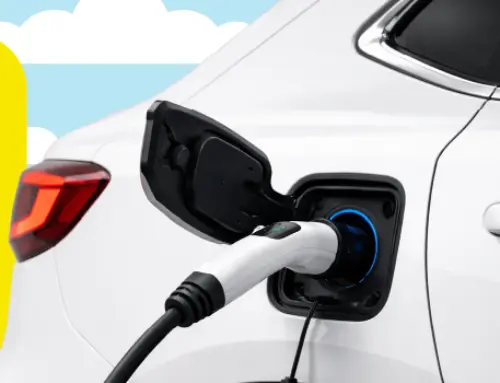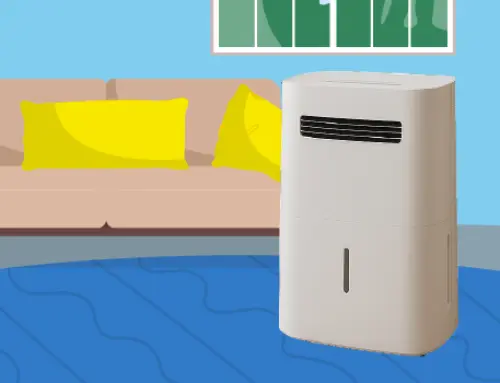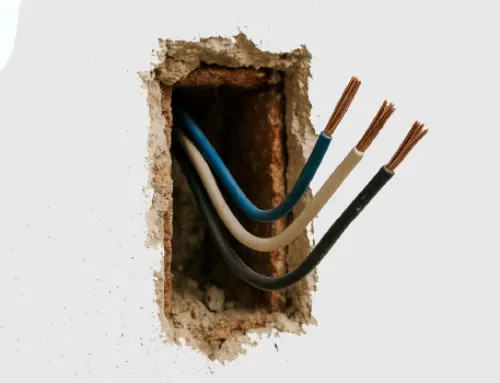What You Wish You’d Known About Portable Air Conditioners
by Tyler Castle
9.5 min read
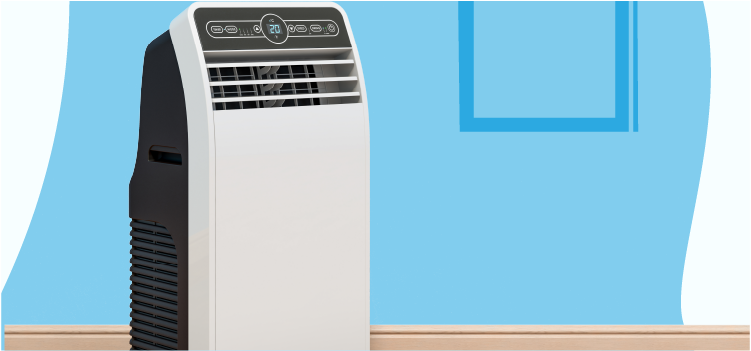
Are you considering a portal air conditioner for your home and wondering where to start? Portable air conditioners offer comfort from the sweltering heat and oppressive humidity, transforming warm environments into cool spaces.
Navigating the world of portable air conditioning can be daunting, with various considerations and potential pitfalls. But we’re here to help you by providing practical insights and essential information before you make the switch.
Key Points of This Article:
- Portable air conditioners work by venting hot air through a hose and are available in single‑hose or dual‑hose designs.
- They are generally safe to use, and newer models offer significantly improved energy efficiency.
- Choosing the right unit depends on room size, energy efficiency ratings, noise levels, ventilation options, and desired features.
- Several recommended models serve different needs, including options for large rooms, small rooms, tight budgets, high efficiency, and compact spaces.
How does a portable air conditioner work?
Before we jump into what you should know about portable air conditioners, let’s explore how they work:
In general, according to Home Depot, portal air conditioners use a standard window venting kit to expel exhaust. Most portable units also have water reservoirs that help dehumidify the room while other models direct exhaust through an air duct. Homeowners should consider two types of portable air conditioners:
Single-hose portable air conditioners work by pulling existing air from inside your room. From there, a motor cools the air and funnels the excess air through a hose and out the window. On the other hand, dual-hose portable air conditioners pull fresh from outside with one hose and once the air is cooled, the excess air is filtered out through the second hose.
Are portable air conditioners safe?
The short answer is, yes, portable air conditioners are generally safe. We’re sure while you’ve been researching your options for air conditioners, you’ve heard the term “exhaust”. Luckily, portal air conditioner exhaust is not harmful and does not contain any noxious chemicals. The term “exhaust” simply refers to the hot air and moisture that your unit expels.
However, like any electrical appliance, there are potential safety considerations to keep in mind like electrical safety and ventilation. With proper care and caution portal air conditioners are nothing to worry about.
Are new air conditioners more energy efficient?
In general, yes, newer air conditioners are much more energy-efficient. This is largely because of advances in cooling technology and energy efficiency becoming a growing interest in homeowners.
According to the U.S. Department of Energy, even if your air conditioner is only 10 years old, you could potentially save 20%-40% on cooling costs by replacing it with a newer and more efficient model.
How many watts does a portable air conditioner use?
If you’re asking yourself, how many watts is a portable air conditioner? We’re here to answer this for you. On average, portable air conditioners have a wattage range between 800 and 1,500 watts. However, it’s essential to check the manufacturer’s specifications for the specific model you’re considering, as power consumption can vary widely between different units.
How to choose the right portable air conditioner for your home
Choosing the right portable air conditioner for your home involves considering several key factors. Here are some important considerations to keep in mind when choosing your portal air conditioner:
Room size
The choice of air conditioner depends largely on the size of the room you want to cool. To determine the right cooling capacity measured in BTUs, assess the size of the room you need to cool. A BTU (British Thermal Unit), is a unit of measurement that measures how much energy your air conditioner uses to remove heat from your home within an hour.
Keep in mind, that higher BTU ratings are required for larger rooms, while smaller rooms may need lower BTU ratings to avoid overcooking.
Energy efficiency
To make your home more energy efficient, you should consider a few things about portable air conditioners. Consider the unit’s energy efficiency ratio (EER) or seasonal energy efficiency ratio (SEER) to gauge its energy efficiency. The higher the EER rating, the more efficient the air conditioner. The higher the SEER, the more efficiently it will operate over an entire season.
To find this information you can usually find it on the “Energy Guide” label on your appliance or check sites like Energy Star for your appliance’s ratings.
Noise
Consider the noise level of the unit, especially if it is used in bedrooms or quiet areas. Look for units that are on the quieter side to minimize disruption to your daily activities. Some portable air conditioners are designed with features like quiet mode or sleep mode, which operate at reduced noise levels during nighttime use.
Ventilation
Ventilation is a crucial aspect to consider when choosing a portable air conditioner. Most portable air conditioners require venting to expel hot air generated during the cooling process. The most common way of venting is through an open window.
But if you’re planning on using a portable air conditioner where windows are available like a basement office, venting could be difficult. If a window is not available, a portable air conditioner might not be the best option for you.
Features
Evaluate additional features such as programmable timers, multiple fan speeds, and adjustable louvers for customized comfort. Look for features that enhance convenience and usability. Portal air conditioners often come with remotes or features that can hook up to your smart home monitoring system.
Be sure to evaluate your priorities and lifestyle preferences to determine which features are most important to you.
Tips for matching the unit to your specific needs and space requirements
- Start by measuring the dimensions of the room you want to cool to determine the square footage. This will help you identify the appropriate cooling capacity (BTUs) needed for the space.
- Take into account the level of insulation in the room. Well-insulated rooms will retain cool air more effectively while poorly insulated spaces won’t.
- Consider the amount of sunlight the room receives throughout the day. Rooms that receive direct sunlight may require a higher cooling capacity.
- Take note of the ceiling height in the room, as taller ceilings may require more cooling power.
- Verify that your chosen location has access to a suitable electrical outlet to support your air conditioning unit.
- When you’re ready to start searching, many online retailers display the square footage their units can cool. Make sure you have the size of the room you’re looking to cool handy so you can pick the correct unit to cool your space.
How to vent a portable air conditioner without a window
Remember, portable air conditioners need ventilation outlets to work properly. If you don’t have access to a window for proper ventilation there are ways to vent your system otherwise. One of the most common solutions is a sliding door vent kit.
To use this kit, slide the vent panel into the open space of the sliding door track. Extend the adjustable hose from the vent panel to the exhaust port on the portable air conditioner. Next, attach the hose securely to the exhaust port on the portable air conditioner, then gently close the sliding door against the vent panel, making sure that it fits snugly against the panel to prevent air leakage.
Are there any portable air conditioners that don’t require venting?
According to Home Depot, yes, there are portable air conditioners that don’t require venting. Ventless air conditioners evaporate water to cool the air rather than using the air in your room. Ventless air conditioners work by applying the same principle you feel when you cool off in a pool. This is because water retains more heat than any other substance on Earth.
Your portable air conditioning options
Now that you know what to expect with purchasing a portable air conditioner, we’ll give you our picks for the best models:
Best for large rooms
For large room cooling capabilities, we recommend the 10,000 BTU Black and Decker portable air conditioner. Equipped with both cooling and heating functionality, this unit can cool a space of up to 450 square feet. This single-hose air conditioner can circulate air with high efficiency using the auto air swing mode. You can also pick between three cooling speeds for ultimate comfort.
Best for small rooms
For cooling small rooms, we recommend the 8,000 BTU Frigidaire portable air conditioner. This model comes with excess moisture remover for those wet sticky days. Coming with Dehumidifying Dry Mode and dust capture, this air conditioner also comes with an easy-to-clean washable filter.
Most budget-friendly
Clocking in at below $300 the SereneLife 8,000 BTU air conditioner gives you the most bang for your buck. This unit features a lightweight and sleek body design intended to be used in the bedroom, and living room. The compact AC unit features a simple electric plug in operation and has 3 modes – cooling, dehumidifier, and fan. And best of all, it’s remote-controlled!
Most energy efficient
Although there are a lot to choose from, we selected the Coolblus 8,000 BTU air conditioner. This portable air conditioner has a high CEER (Coefficient of Energy Efficiency Ratio) of 6.5. Equipped to cool spaces up to 360 square feet, this 3-in-1 machine cools, dehumidifies, and functions as a fan.
Smallest portable air conditioner
Our pick for the smallest portable air conditioner to cool your home stands tall with Gymax’s 8,000 BTU model. This water tank air conditioner can cool spaces as small as 200 square feet and offers a 3-in-1 capability to cool, dehumidify, and act as a fan. This model also offers the “Quiet Cooler” feature that won’t disturb you while you sleep.
Common issues with portable air conditioners solved
How often do I need to drain a portable air conditioner?
Draining your portal air conditioner often only applies to ventless or water-based air conditioners. How often you drain your portable air conditioner will vary based on your frequency. As a rule of thumb, you should drain your portable air conditioner at least once a day.
Why is my portable air conditioner leaking water?
Your portable air conditioner could be leaking for several reasons but one of the most common reasons is moisture build-up. This comes from the infrequency of draining your unit. A leaky unit could also be a sign of wear and tear. Be sure to have your unit regularly inspected by an expert to keep it running smoothly.
Why does my portable air conditioner smell?
A smelly air conditioning unit could be because of the lack of drainage in your unit. When water sits in your portable AC unit for too long, this creates a breeding ground for mold, leading to an unpleasant smell.
For over 35 years, Santanna Energy Services has been proudly providing easy electricity and gas plans for your home. We’re proud to offer a wide range of energy solutions and products tailored to meet the unique needs of our customers. If you’re looking for more predictability in your air conditioning bill, consider our Unlimited Energy plan! With Unlimited Energy, the supply portion of your bill never changes, no matter the changes in season.
Tyler is an experienced energy professional, having worked for Santanna Energy Services, for the past four years. He is passionate about renewable energy and believes that diversifying the energy grid is the key to a sustainable future. Tyler is dedicated to supplying consumers with the best possible energy solutions and works diligently to make sure that Santanna can deliver the highest quality service.



